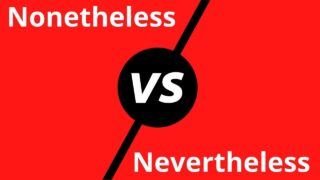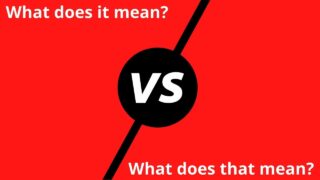There are three main types of conjunctions: Coordinating conjunctions, subordinating conjunctions and correlative conjunctions. In this article, we will tackle correlative conjunctions. Let’s roll our ball by starting with the usual quick answer. What are correlative conjunctions? Correlative conjunctions are the conjunctions that come in pairs and are inseparable. They are very useful in …
Grammar
Although trickier than coordinating conjunctions, subordinating conjunctions are great language devices too. Why so? Well, they simply make writing and speaking more organized, if not proficient. Yes, the term used for these grammatical elements might be a bit intimidating. But, you need not worry because you surely have heard of these things before. Did you …
“Coordinating conjunctions.” What are these things again? I’m pretty sure I’ve heard of them before. Oh, wait. Aren’t they those kids who are obsessed with superhero comics?” If this sentiment sounds familiar, then you are on the right page right now. Roughly speaking, coordination is one of the fundamentals of grammar. Needless to say, it …
Here we go again, asking trivial matters such as the difference between linguistically-luscious words like “nonetheless” and “nevertheless.” Luckily enough, any concern like this is our daily bread here at Linguaholic because, for us, maybe for you too, language is nourishment. We kind of breathe language as well, so to speak. So, worry no more …
Using commas with the vocative case is one of the first things we learn at school when it comes to writing classes. That’s how important these types of commas are. But why not? Just like periods or full stops, commas are actually some of the hardest punctuation marks to master – even among adults. To …
Have you been wondering when to place a comma before a verb? Tricky question, isn’t it? Well, don’t get worked up because a lot of people out there also ask the same thing. In our post today, we’ll discuss when exactly you would need a comma before a verb as well as when you must …
When was the last time you intensely thought about whether a comma should come before the word “without”? If you are reading this post, it probably means that punctuation rules have gotten on your nerves, and you just badly want to tick this mystery off of your list. So, without further ado, let us explore …
Some of the most commonly used pronouns are “it” and “that,” and both can be grammatically used in the question “what does x mean?” However, people seem to get bothered as to when we should say “what does it mean?” instead of “what does that mean?” and vice versa. So today, we’ll look into the …
Whether you’re a civilian or a soldier, you can always show respect to others by carrying out a certain greeting behavior, notwithstanding the language you use. And, whether you run into a friend, a family member, a boss, or a colleague, your short and sweet greeting will always be appreciated and admired. Although greeting people …









